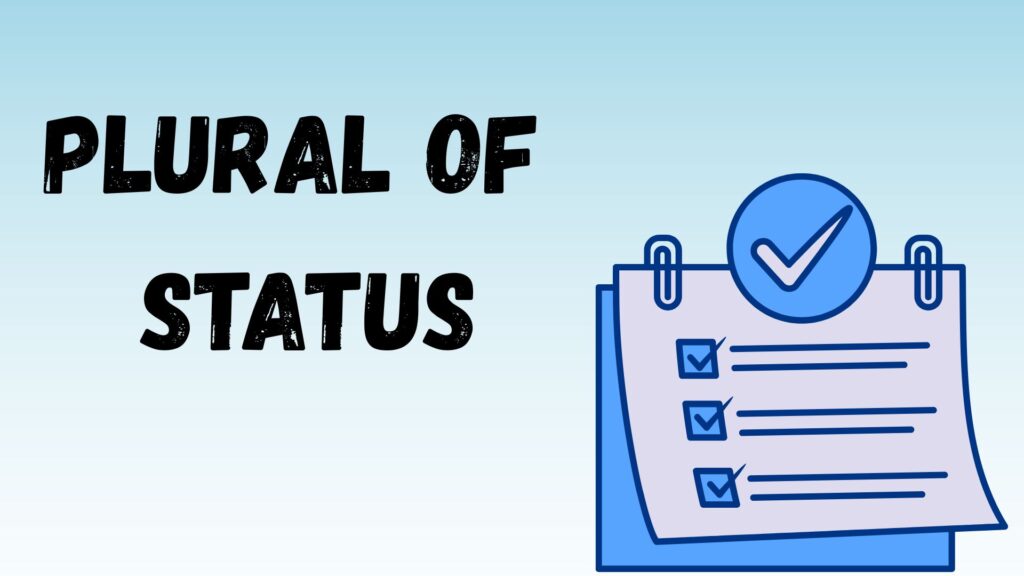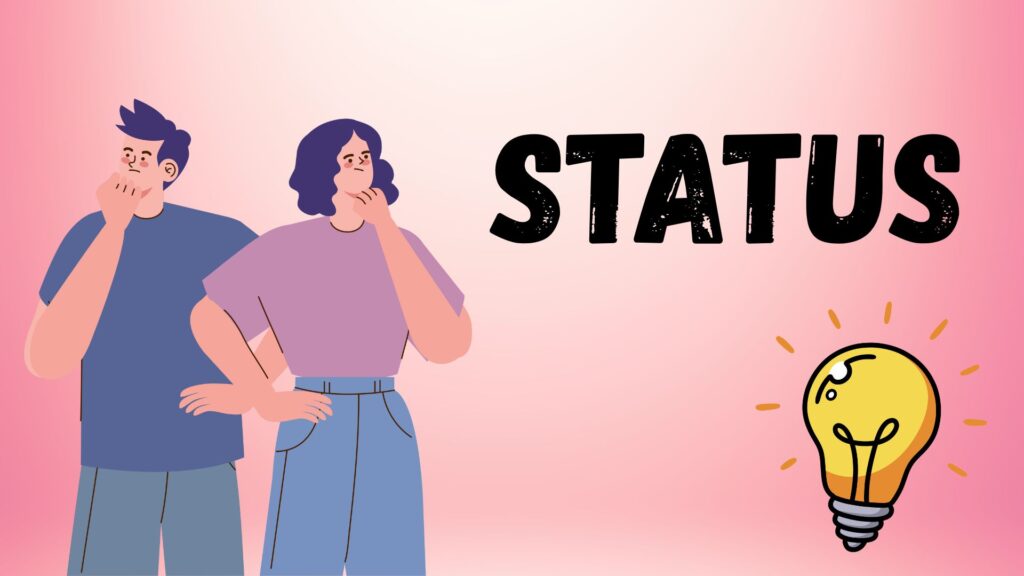What’s the Plural of Status? Understanding the Grammar, Usage, and Latin Roots
The word status might look simple, but when it comes to its plural form, many people hit a wall. Is it status? Statuses? Or maybe a Latin-style plural like stati?
Let’s break it down clearly with real-world examples, grammar insights, and modern usage tips so you’ll never hesitate again when using this word in writing or speech.
✅ What Is the Plural of Status?

Let’s get straight to the answer:
👉 The correct plural form of “status” in English is statuses.
Although the word status has Latin roots, in modern English it follows regular pluralization rules for countable nouns add -es.
❌ Stati is not correct in English.
✅ Statuses is grammatically and semantically correct.
🧠 Why Not Stati? A Brief Look at Latin Noun Endings
Some English speakers assume that words ending in “-us” should follow Latin plural rules (like cactus → cacti, or alumnus → alumni). And that’s a smart instinct but it doesn’t always apply.
Here’s why:
- Latin origin: Status is derived from Latin, specifically from the noun status, meaning “condition” or “position,” which belongs to the fourth Latin declension, not the second.
- Fourth declension nouns in Latin typically form plurals ending in -us, not -i.
So in Latin, the plural of status would still be status but modern English grammar doesn’t use that Latin form.
Instead, English adapts the word as a regular countable noun, making the plural statuses, not stati or status.
🧾 Usage Examples in Real Life
Let’s look at how you’d use statuses correctly in different scenarios.
📧 Example 1: Workplace Email
Subject: Project Update – Team Statuses
Hi Jacob,
I’ve reviewed the team’s latest reports. Here are the updated statuses for each project lead:
– Amanda: On track
– Ravi: Awaiting client approval
– Jenna: Requires resource allocationLet me know if we need to flag any risks.
Best,
Clara
✅ In this example, statuses is clearly used to describe the individual progress conditions of multiple projects.
📲 Example 2: Social Media Report
“We monitored statuses across Instagram, Facebook, and Twitter to track engagement trends for the brand launch.”
Here, statuses refers to posted content updates across various platforms.
👥 Example 3: Legal or Immigration Context
“The agency processed over 3,000 applications for changes in immigration status last quarter. Among these, 1,200 were granted refugee statuses under federal law.”
This kind of phrase shows up in official government, legal, and academic texts. Legal status, economic status, and refugee status are common terms in policy writing.
📚 Is “Status” Ever Used as a Plural?

In some rare cases, status is treated as a mass noun or uncountable noun, especially when referring to a general condition or position in abstract terms.
Example:
“People from different status groups often experience unequal access to healthcare.”
Here, status doesn’t refer to discrete items but a collective concept so it stays singular. But this usage is limited and context-specific.
🔍 Let’s Zoom into Grammar: Countable vs. Uncountable Nouns
Why is this important?
Because nouns in English follow different pluralization patterns depending on whether they are countable or uncountable:
| Noun Type | Example | Plural Form |
|---|---|---|
| Countable | job status, marital status | statuses |
| Uncountable | respect, water | (no plural form) |
In most cases where status is used, it’s countable, and that’s why we say statuses.
📖 Definitions & Contexts: What Does Status Mean?
Let’s briefly define the term to see why it shows up in so many areas:
| Type of Status | Meaning |
|---|---|
| Social status | A person’s rank or position in society |
| Economic status | Level of wealth or financial standing |
| Legal status | A person’s condition under the law (e.g., asylum, marriage, DACA) |
| Immigration status | Category of residency or citizenship |
| Professional status | Title or job-related standing |
These help explain why we often encounter the phrase status plural or need clarification around status definition in different contexts.
🧬 Etymology of “Status”
The word “status” first entered English in the 1670s, borrowed directly from Latin. It stems from stare, meaning “to stand,” and refers to one’s standing or condition.
By 1791, English speakers were using it to talk about legal positions and official ranks, paving the way for today’s wide usage from immigration offices to Instagram bios.
⚖️ Why Grammar Matters: Status and Verbs
Here’s where English syntax steps in. When using plural statuses, you must match the verb form accordingly:
“The statuses were updated.” ✅
“The statuses is updated.” ❌
This relates to subject-verb agreement, a key rule in English noun rules and status in grammar.
🗣️ Common Mistakes to Avoid
Let’s highlight a few easy-to-miss errors:
❌ Mistake #1: Using “status” for multiple conditions
“The status of the projects are…”
Correction: “The statuses of the projects are…”
❌ Mistake #2: Writing “stati” as the plural
“All employee stati have been reviewed.”
Correction: “All employee statuses have been reviewed.”
❌ Mistake #3: Using “status” without verb agreement
“Their statuses is unclear.”
Correction: “Their statuses are unclear.”
💡 Quick Tips: How to Remember the Plural of Status

- If you’re talking about multiple conditions, use statuses.
- Don’t overthink the Latin. English has borrowed, not copied, Latin grammar.
- Check your verb agreement plural nouns need plural verbs.
- Think of it like this: If you can count them (job status, immigration status, etc.), they’re countable and they take an -es plural.
🧭 Wrapping It Up: Status in English
So, what’s the verdict?
👉 “Statuses” is the grammatically correct and widely accepted plural form of “status.”
Whether you’re managing project updates, analyzing social status, or navigating legal terminology, using the correct plural form ensures clarity and professionalism.
The next time someone asks, “Is it statuses or stati?” you’ll not only know the answer, but the history, grammar, and nuance behind it.
📌 Final Takeaways
- ✅ Use statuses when referring to multiple distinct conditions or positions.
- 🧠 Avoid the incorrect form stati, even though it may sound “more Latin.”
- 📘 Match subject-verb agreement based on the grammatical number.
- 💬 Rely on modern usage patterns over outdated Latin rules in English writing.

